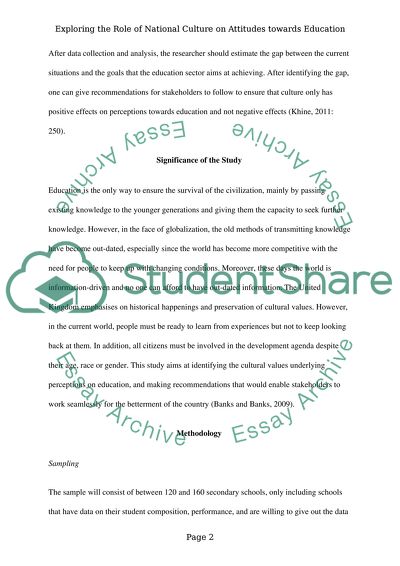Cite this document
(“Exploring the Role of National Culture on Attitudes towards Education Research Proposal”, n.d.)
Exploring the Role of National Culture on Attitudes towards Education Research Proposal. Retrieved from https://studentshare.org/social-science/1446435-exploring-the-role-of-national-culture-on-attitudes-towards-education
Exploring the Role of National Culture on Attitudes towards Education Research Proposal. Retrieved from https://studentshare.org/social-science/1446435-exploring-the-role-of-national-culture-on-attitudes-towards-education
(Exploring the Role of National Culture on Attitudes towards Education Research Proposal)
Exploring the Role of National Culture on Attitudes towards Education Research Proposal. https://studentshare.org/social-science/1446435-exploring-the-role-of-national-culture-on-attitudes-towards-education.
Exploring the Role of National Culture on Attitudes towards Education Research Proposal. https://studentshare.org/social-science/1446435-exploring-the-role-of-national-culture-on-attitudes-towards-education.
“Exploring the Role of National Culture on Attitudes towards Education Research Proposal”, n.d. https://studentshare.org/social-science/1446435-exploring-the-role-of-national-culture-on-attitudes-towards-education.


